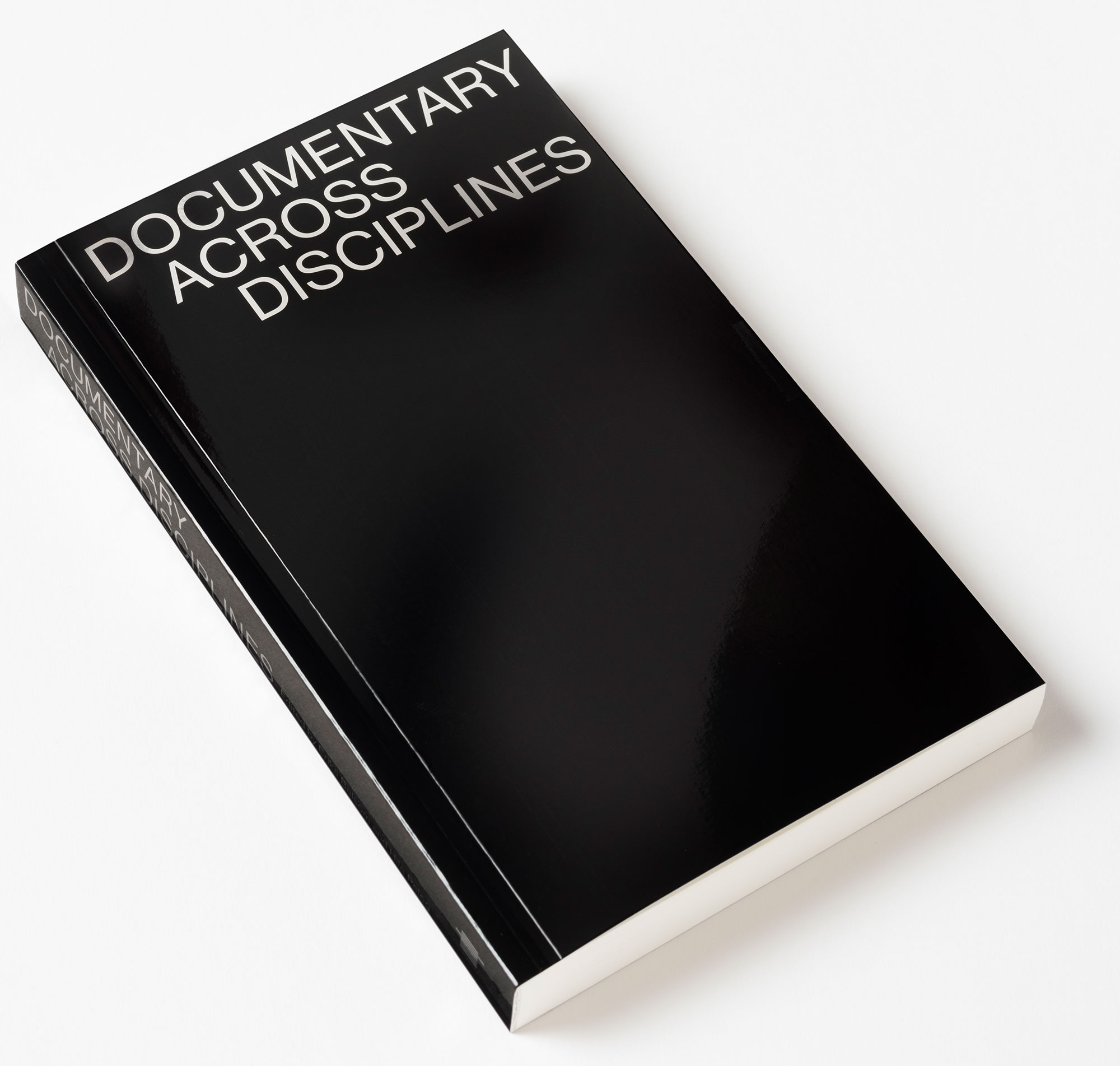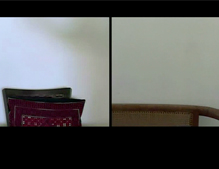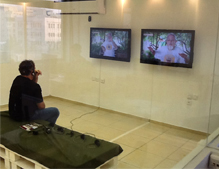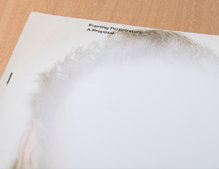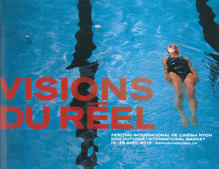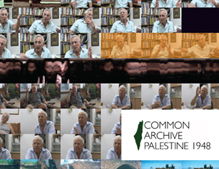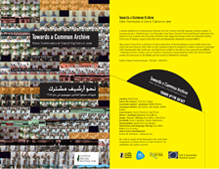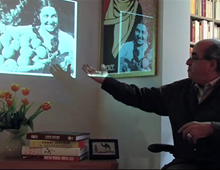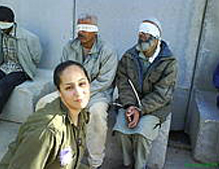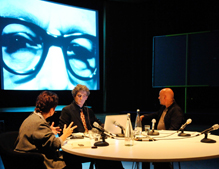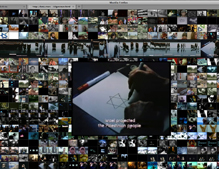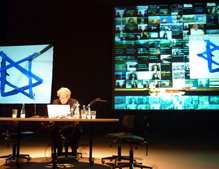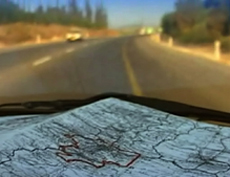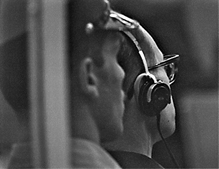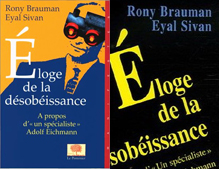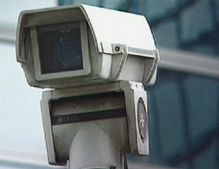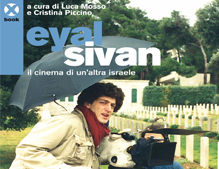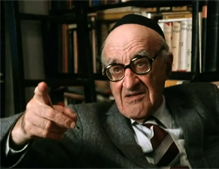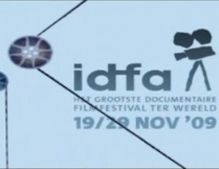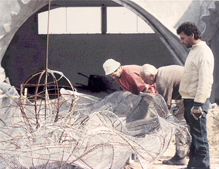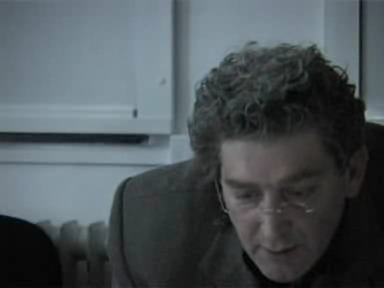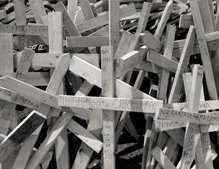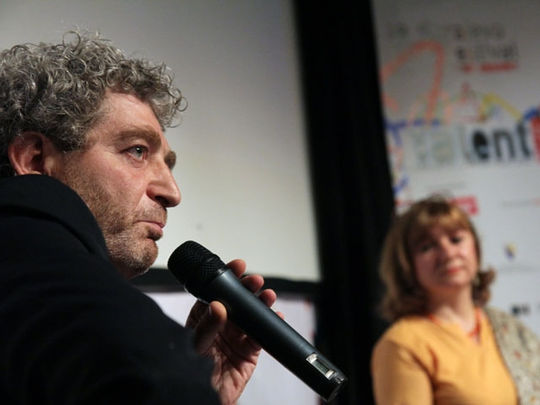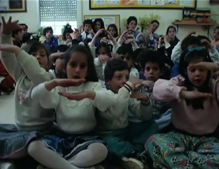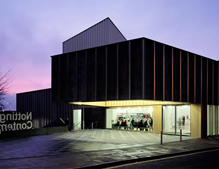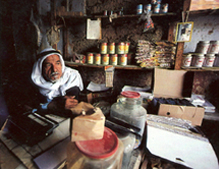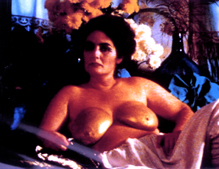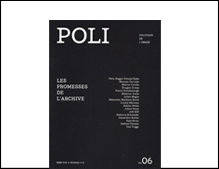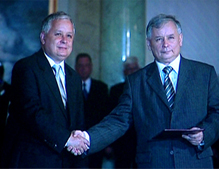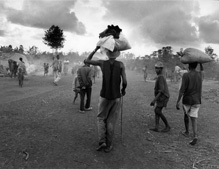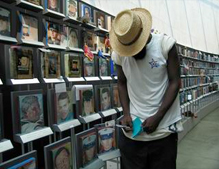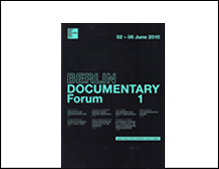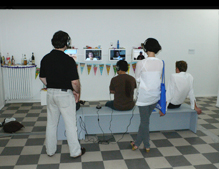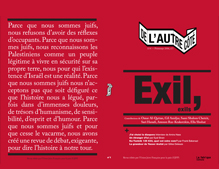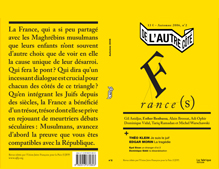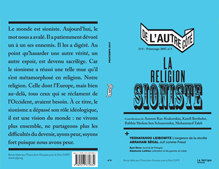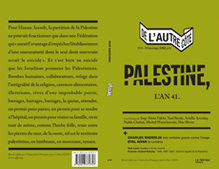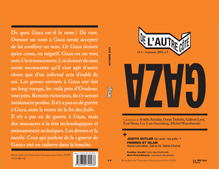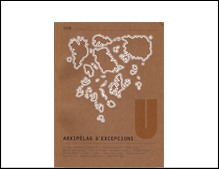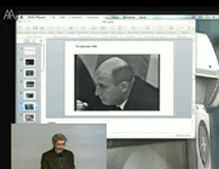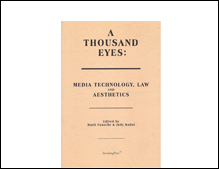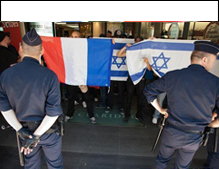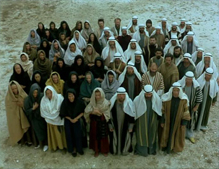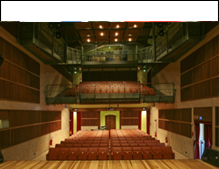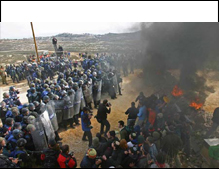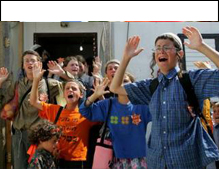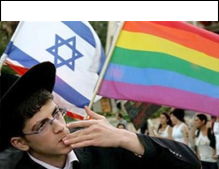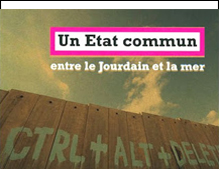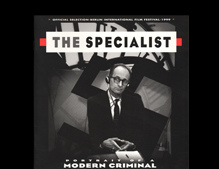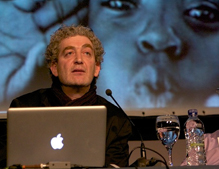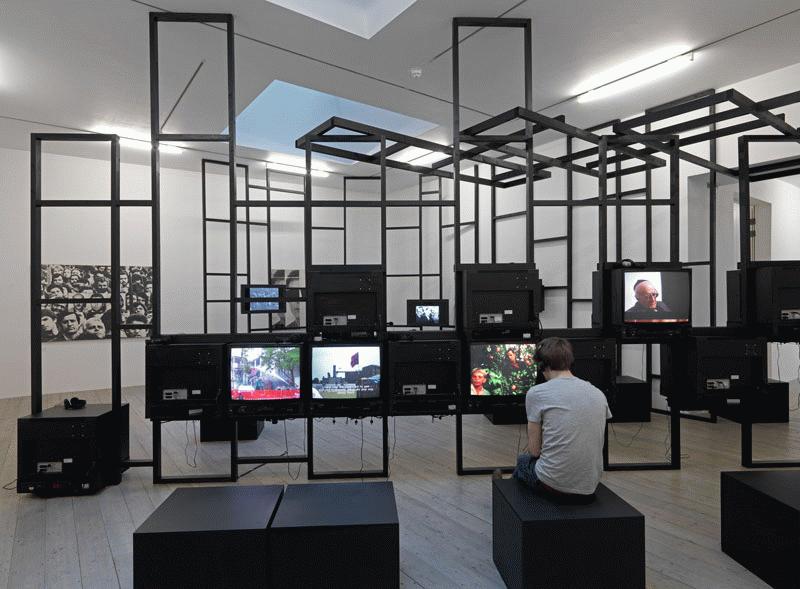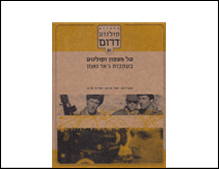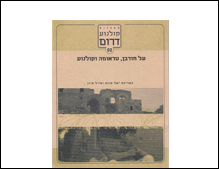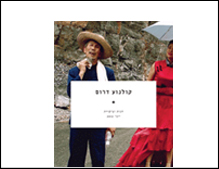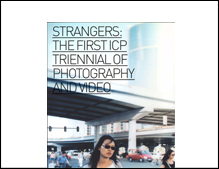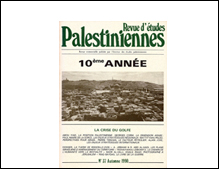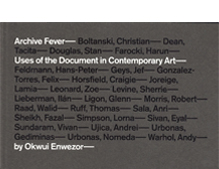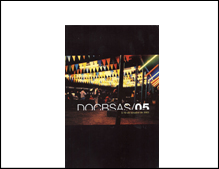-
Proposal for a visual media exhibition
with the participation of students of the Master of Film at the Dutch Film Academy, Amsterdam -
Get my films
Buy DVDs online at www.momento-films.com -
IZKOR
slaves of memory
Documentary film | 1990 | 97 min | color | 16mm | 4:3 | OV Hebrew ST -
Common Archive Palestine 1948
web based cross-reference archive and production platform
www.commonarchives.net/1948 - Project in progress - -
Montage Interdit [forbidden editing]
With professors Ella (Habiba) Shohat and Robert Stam / Berlin Documentary Forum 2 / Haus der Kulturen der Welt / June 2012 -
Route 181
fragments of a journay in Palestine-Israel
Documentary film co-directed with Michel Khleifi | 2003 | 272 min [4.5H] | color | video | 16:9 | OV Arabic, Hebrew ST
-
The Specialist
portrait of a modern criminal
Documentary film | 1999 | co-author Rony Brauman | 128 min | B/W | 4:3 | 35 mm | OV German, Hebrew ST -
Jaffa
the orange's clockwork
Documentary film | 2009 | 88 min | color & B/W | 16:9 | Digital video | OV Arabic, Hebrew, English, French ST
-
Montage Interdit
www.montageinterdit.net
Web-based documentary practice. A production tool, archive and distribution device | project in progress
-
Common State
potential conversation [1]
Documentary film | 2012 | 123 min | color | video | 16:9 split screen | OV Arabic, Hebrew ST -
Towards a common archive
testimonies by Zionist veterans of 1948 war in Palestine
Visual Media exhibition | Zochrot Gallery (Zochrot visual media lab) | Tel-Aviv | October 2012 - January 2013
-
I Love You All
Aus Liebe Zum Volk
Documentary film co-directed with Audrey Maurion | 2004 | 89 minutes | b/w & color | 35mm | OV German, French ST
THE SPECIALIST, portrait of a modern criminal 1999
Documentary| 128 min | 35mm | B&W | 4:3 | Dolby SRD | 1999
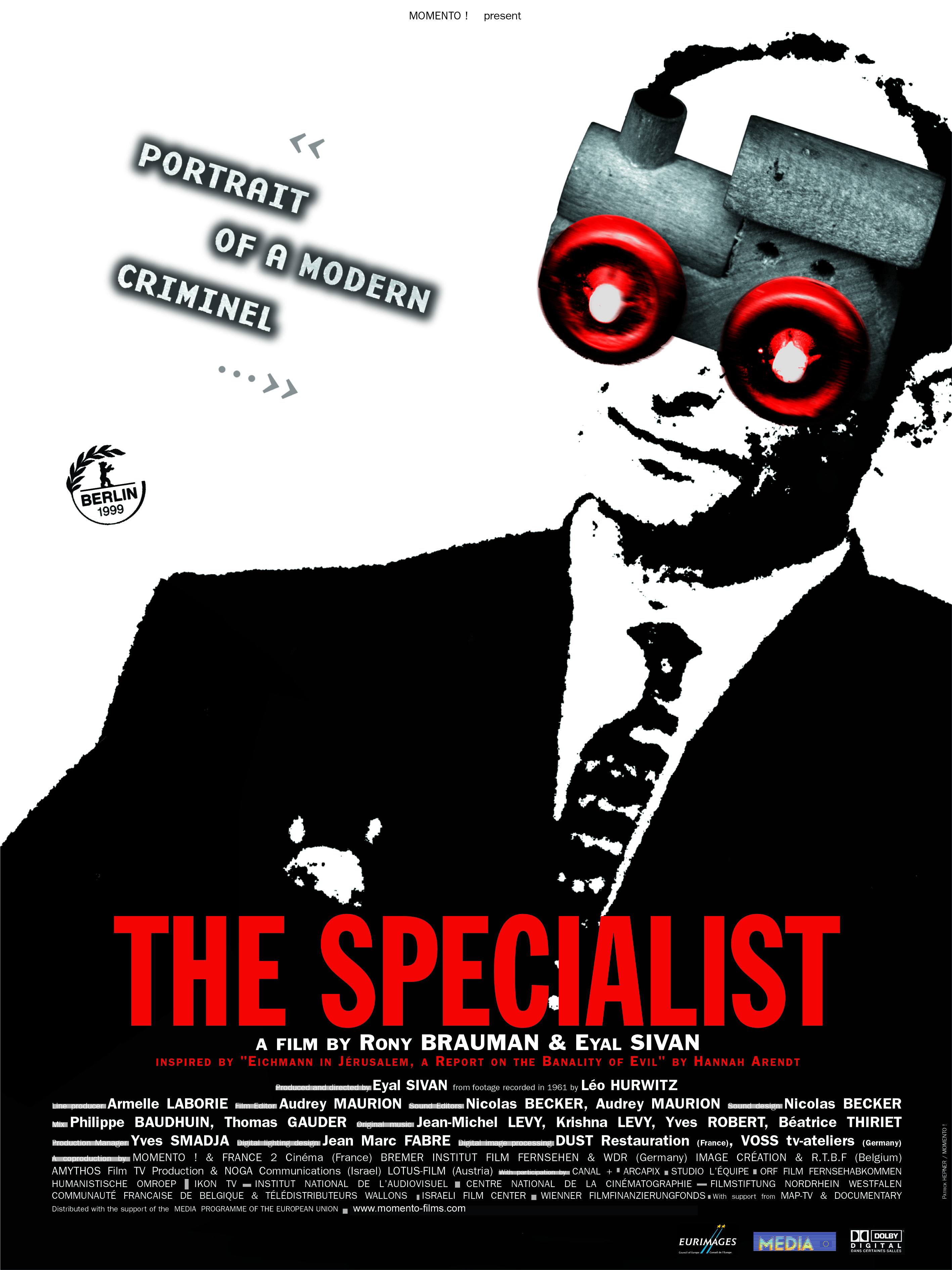
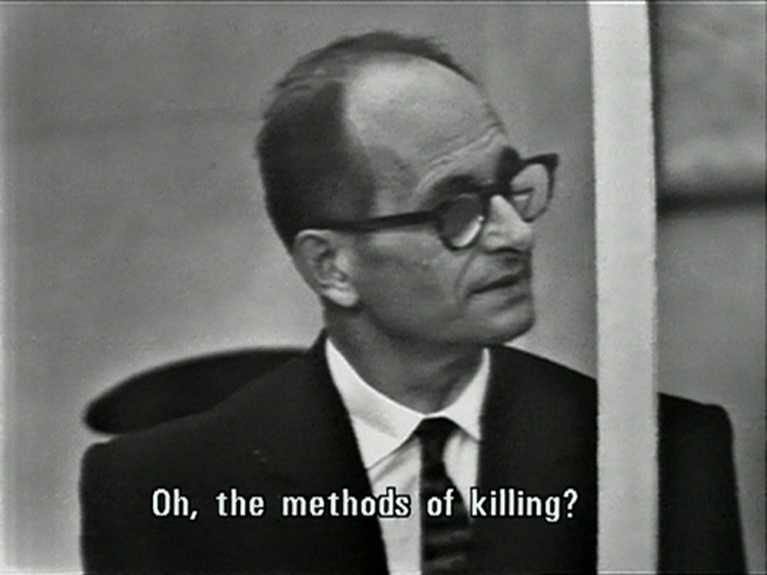
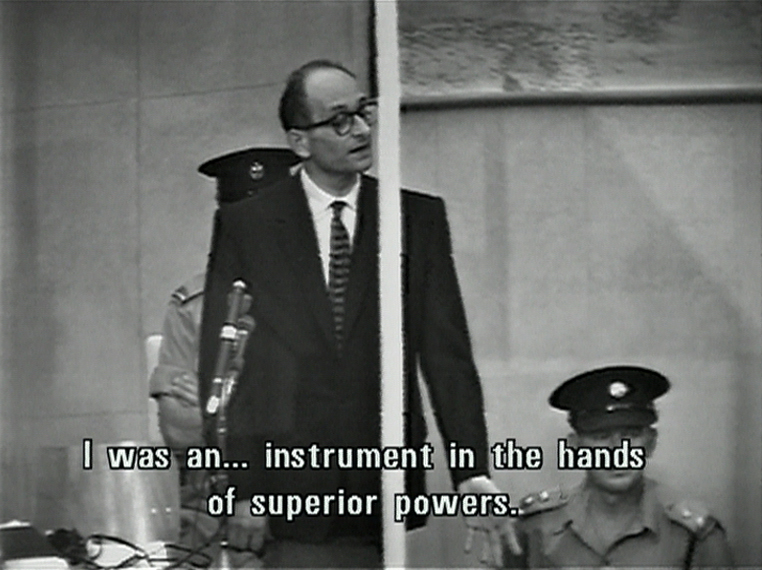
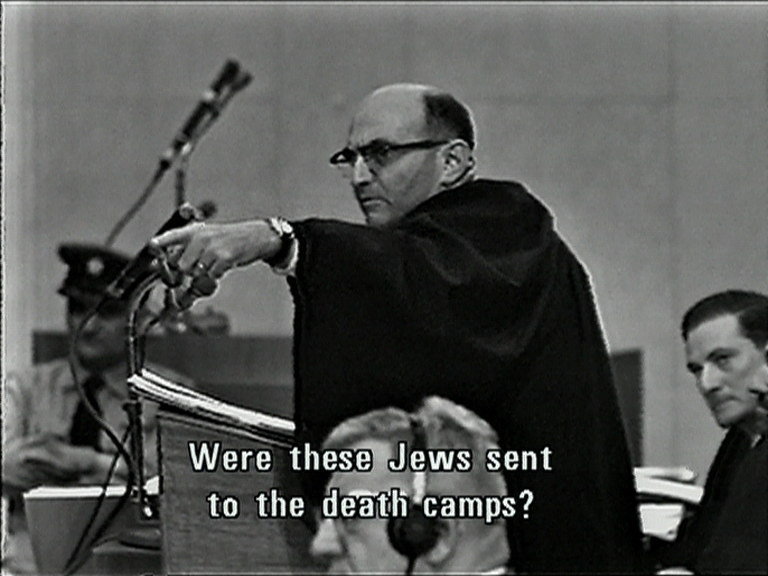
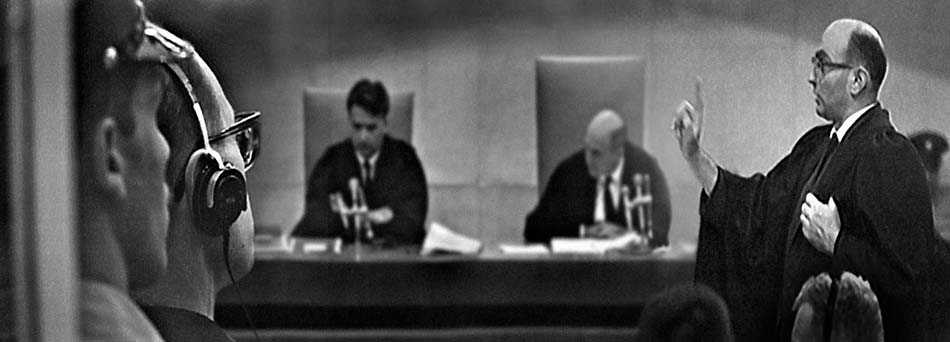
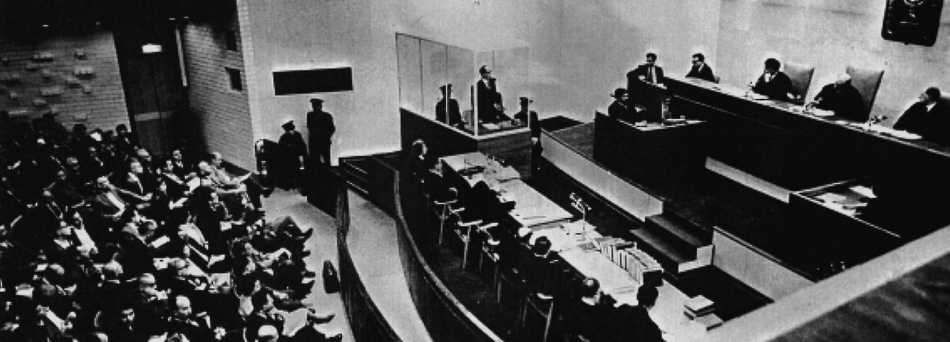
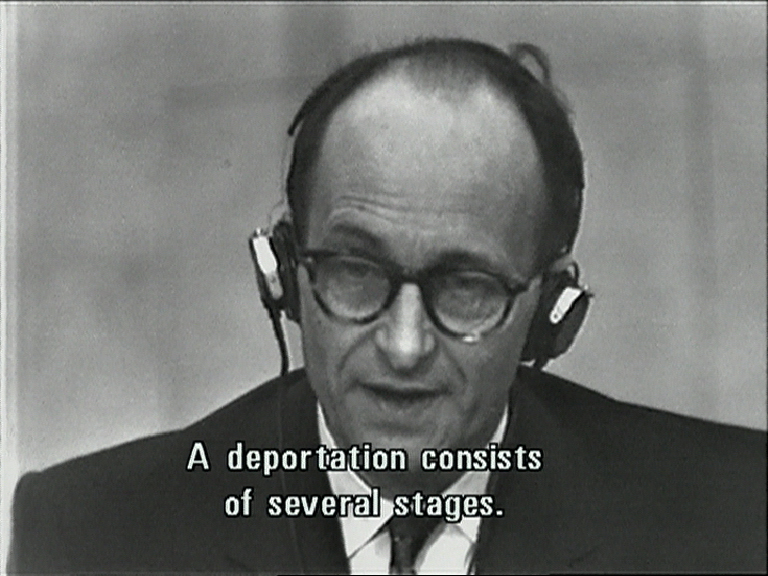

The incredible trial of an appallingly ordinary man. Drawn entirely on the 350 hours of rare footage recorded during the trial of Adolf Eichmann, in 1961, in Jerusalem, this film about obedience and responsibility is the portrait of an expert in problems resolving, a modern criminal. The film is inspired from the controversial book by Hannah Arendt : "Eichmann in Jerusalem, report on the banality of evil".
***
"THE SPECIALIST" is a courtroom drama painting the portrait of a zealous bureaucrat who has immense respect for the Law and hierarchy, a police official responsible of the elimination of several million people, a modern criminal.
The prosecution describes the accused as a blood-thirsty pervert, the Machiavellian liar and a serial-killer yet he appears as a quiet family man, both comic and terrifying in his banality. Although he doesn't deny the role he played in the criminal enterprise that he belonged to, he shelters behind the instructions of his superiors, his vow of allegiance and the obligation of obey orders.
He considers that his role as a mere agent, a purely administrative and logistic one, devoid of all passion, shelters him from the justice of men, even through it may not exempt him from all responsibility.
The accused, Adolf Eichmann, is a man of average height, in his fifties, shortsighted, nearly bald and wracked by nervous tics. Throughout his trial, he sits in a glass box, surrounded by neat piles of documents that he ceaselessly notes, re-reads and leafs through. An expert on emigration and specialist in the "Jewish issue", responsible for the transportation of "racial deportees" to the Nazis camps between 1941 and 1945, he describes his work with suffocating bureaucratic precision. Before the court and the witnesses who survived the hell that he consigned them to, he admits to having provided the death factories with human convoys for destruction. He struggles to show the conflict between his duty and his conscience and insists on the fact that no one can accuse him of having done his job badly.
Intoxicated on the dizziness of his own powerlessness, the accused describes himself as "a drop in the ocean, an instrument in the hands of superior forces". If he hadn't done it, he says, someone else would have done it instead.
The contrast between the monstrous nature of the crime and the mediocrity of the accused is immediately striking and becomes even more apparent during the thirteen scenes making up this documentary feature, revealing the portrait of a terrifyingly ordinary man.
"THE SPECIALIST" is composed exclusively of the previously unseen 350 hours of footage recorded during the dramatic trial of the Nazi war criminal Adolf Eichmann, in Jerusalem in 1961.
The setting is the main auditorium of the House of the People in Jerusalem, transformed into a courtroom for this occasion. Here, over more than eight months in 1961, the State of Israel judged the man who escaped the Nuremberg trials.
The film takes place within these four walls.
The accused, Adolf Eichmann, German, born in 1906 in Solingen, Germany.
He joined the SS in Austria at the age of 26. Nine years later, in 1941, he was promoted to the rank of SS lieutenant colonel.
Former head of the IV-B-4 bureau handling inner security of the Third Reich, he was in charge of the mass deportation of Jews, Poles, Slovenes and gypsies in Europe to the concentation and death camps. Following his capture in Buenos Aires by the Israeli secret service in 1960, he was tried in Jerusalem the following year, then hanged. Unanimously considered as responsible for the extermination of millions of people during the Second World War, he recognised that he was guilty of "terrible crimes" while denying the charges that the court brought against him.
He is the main character in the film.
The prosecutor, Giddeon Hausner, born in 1915.
In his opening speech, that lasted three days, he presented himself as the voice of six million victims. Using anger and sarcasm with theatrical skill to confront of the accused, his rage would not diminish throughout the trial.
In the name of the Israeli government, he led the prosecution's case against Eichmann and, through him, the whole Nazi movement.
Assisted by Gabriel Bach and Ya'akov Bar-Or, he brought forward evidence for the fifteen counts of indictment against A. Eichmann: seven for crimes against humanity, four for crimes against the Jewish people and four others for war crimes and belonging to a criminal organisation.
The Court. The trial was not undertaken by a special jurisdiction but by the Jerusalem District Court. Three Israeli judges of German origin presided.
The Chairman, Moshé Landau, was an austere character. Throughout the trial, he continually strove to bring the prosecution back onto the legal terrain of Eichmann's own responsibility. He also used his own authority to demand "clear answers to precise questions" from the accused.
Judge Benjamin Halévy seemed studious and precise. He unhesitatingly interrupted the procedure to obtain precise details from the witnesses and also acted as Eichmann's "confessor", speaking to him frequently in German.
Judge Yitzhak Raveh was the oldest member of the court. He questioned the accused in German, in a debonair tone, obtaining cold and precise revelations in return.
The dialogue between these two judges and Eichmann sheds precious light on the accused's role and methods.
The defence lawyer, Robert Servatius, a lawyer from Cologne, was formerly an assistant at the Nuremberg trials. Hired by the accused, he was paid by the Israeli government. Overwhelmed by the scale of the charges against the accused, he remained a shadowy figure throughout the trial. The accused carried out his own defence.
Filming. Deliberately designed as a spectacle, the Eichmann hearings are the only example of a Nazi criminal's trial filmed in its entirety. Four video cameras, concealed behind fake partitions in order not to disturb proceedings, were placed in the auditorium transformed into a courtroom. The footage from one of these four cameras, as well as the sound, was recorded by a revolutionary technique for the time: video. The American director Leo T. Hurwitz decided which of the four angles was recorded.
Around 500 hours of the trial were recorded on 2-inch video-tape, in the NTSC standard. Part of this stock has vanished. The remaining 350 hours were conserved haphazardly and have had to be remastered and catalogued.
The salvaged footage of the trial today forms a historic collection that is now available for consultation and use.
The footage for "The Specialist" has been restored, regraded and transferred by computer onto 35-mm stock. It is made up entirely from these archives.
© momento production [FR] | BIFF [ALL] IMAGE CRÉATION [BEL] AMYTHOS Film & TV Productions [ISR] LOTUS Film [AUT] FRANCE 2 Cinéma - Westdeutscher Rundfunk [ALL] RTBF Télévision belge [BEL]
THE SPECIALIST
128 min | 35mm | B&W | 4:3 | Dolby SRD | 1999
Location : archive footage
OV : Hebrew, German
Sub-titles : French, English, Italian, Spanish, German, Hebrew, Arabic, Chinese, Japanese, Croatian
A FILM BY
Rony BRAUMAN & Eyal SIVAN
With
The Accused
Adolf EICHMANN
Defence Attorney
Robert SERVATIUS
Attorney General
Gideon HAUSNER
Assistant Attorney
Gabriel BACH Ya'akov BAR OR
Presiding Judge
Moshe LANDAU
Judges
Benjamin HALEVI
Yitzhak RAVEH
Based on « Eichmann in Jerusalem, a Report on the Banality of Evil » by Hannah Arendt
Viking Penguin USA Inc. 1963 - Gallimard 1966
Directed and produced by
Eyal SIVAN
based on footage recorded in 1961 in Jerusalem, at the Adolf Eichmann trial,
by
Léo HURWITZ
Executive Producer
Armelle LABORIE
Film Editor
Audrey MAURION
Sound Editors
Nicolas BECKER
Audrey MAURION
Digital Lighting Design
Jean-Marc FABRE
Sound Design
Nicolas BECKER
Mix
Philippe BAUDHUIN
Thomas GAUDER
Original Music
Nicolas BECKER
Jean-Michel LEVY
Krishna LEVY
Yves ROBERT
Béatrice THIRIET
Production Manager
Yves SMADJA
Post-Production Advisor
Thierry NUTCHEY
Associate Producers
Martine BARBÉ
Amit BREUER
Erich LACKNER
Elke PETERS
Production Administrator
Marysette MOISSET, Hasdrubal
Assistant Director
Armelle LABORIE
Assistant Film Editors
Valérie PICO
Maya CYPEL
Assistant Sound Editors
Valérie PICO
Coline BEUVELET
Trainee Editors
Pauline LEMAIRE
Idit RICHARDOT
Production Assistants
Sophie ALBIAR
Chen-Li BAR-TZION
Elke BORMANN
Sabine BOURGEOIS
Barbara JOHR
Joanna GRUDZINSKA
Monika LENDL
Claudia LEVIN
Musicians
Thomas BLOCH - Glass harmonica
Jean-Michel LEVY - Guitares
Yves ROBERT - Trombone
Choir
Mélanges, dirigée par Ariel ALONSO
Archives
Israel State Archives
Steven Spielberg Jewish Film Archive Vendeuse : Marylin KOOLIK
United Studio Hertzelia
Archive Remastering Technical Pattern
Patrick D'ARTOIS
Technical Advisors for Archive Remastering
Mario SCLAIR - ON SET
GRAVITY Post-production
Archive Remastering Technicians
Tim RINGHAM
Alexander SHAPIRO - ON AIR
Alexander PAPIRO - ON AIR
Transcoding of Archive Footage
Damien MAUREL
Restoration Software Design
François HELT, DUST Restauration
DUST Restauration Technical Unit
Philippe CHATEL
Valérie LA TORRE
John MONTEGUT
Jean-François RIDAME
Logistics Management DUST Restauration & Shooting
Hervé de CANTELOUBE
Catherine GASIGLIA
INA Innovation
Maurice OLIVIER
Raymond PERRIN
Jean VARRA
INA Rights et Archives
Jean-Jacques DESSAUX
Digital Post-Production Co-ordinator
Armin ERTL, VOSS tv-ateliers
Digital Post-Production Supervisor
Stefan HELMKE
Digital Effects Supervisor
Carsten DIETZ
Computer Systems Supervisor
Rainer Maguhn
Head Special Effects Operator
Jörn Mayer
Digital Effects Preparation
Frank NOCKE
André PAULSEN
Special Effects Operators
Uta Rath
Arndt Baumüller
Susa Lie
Daniel Brylka
Christiane Grunenberg
Martin Ofori
Deborah Bliklen
Martin Fritz
Computer Graphic Artists
Stéphanie MEE
Patricia MEDJAHED
Bernard MAGAU
Claire SCHNEE
Marcel Appelhans
Cara ERTL
Halis KAYA
Kay Klesing
Annke Kraemer
Dirk Schmidt
Tobias Schoden
Ulrike Wilhelmy
Video Conforming
Armin ERTL
Norbert FRERICH
Eric MARTIN
Digital Post-Production Assistants
Lisa DRECKMANN
Lucas Meyer-Hentschel
Grading
Jean-Pierre GALLET
Eduard HERMANN
Post-Production Sound Co-ordinator
Olivier REY
Sound Logistics Co-ordinator
Dominique JOCHMANS
Remastering Archive Sound
Yisraël DAVID
Music and Sound Effects Recording
Myriam RENÉ
Benoit MENAGER
Nathalie VIDAL
Stéphane WERNER
Sound Engineers
Eric LONNI
Raphaël SOHIER
Nathalie VIDAL
Recorders
François DE MAN
Luc THOMAS
Frédéric WARNOTTE
Optical Transfer
David GILLAIN
Frédéric PIROTTE
Researchers
Maira COHEN
Efrat MICHAELI
Translators
Philippa BENSON
Margarete GERBER
Abraham GERSHOVITZ
Sophie Francis KID
Anne KRAATZ
Tania KRAMER
Alexandra MULLER
Lisa NÜRNBERGER
Annie WEICH
Sub-title Adaptation
Rony BRAUMAN
Catherine NEUVE-EGLISE
Marie-Claude REVERDIN
Andreas WIRTH
Recording
I.N.A.
Studio L'Equipe
Studio Orlando
Son Pour Son
Mix Auditorium
Studio L'Equipe
Editing Equipment
Interface GmbH Allemagne
Sony Austria GmbH
Digital Studios
UMT - France
ERCIDAN - France
VOSS tv-ateliers - Allemagne
Digital Image Processing
DUST Restauration - France
Digital Transfer to 35mm Film
Film Laboratories
CENTRIMAGE - NEYRAC
LISTO Film GmbH Autriche
Sub-titling
Ercidan - France
Titra Film - Autriche
Stills Laboratory
Mise au Point
International Transport
MIDNITE EXPRESS
Production Accountants
Philippe CHATILLON
Sandrine JOUAULT
Certified Accountant
Sophie BARGE
Literary Agent
La Nouvelle Agence
Legal Advisors
Maître Sabine CORDESSE
Maître Patrick HAUDUCŒUR
Advocat Orna LIN
Maître Claudine MEYRAND
Press Attachée
Eva SIMONET
Credits
ERCIDAN
SYNCHRO FILM
Trailer
Franck LAMBERTZ
A Coproduction By
MOMENTO ! - France
BREMER INSTITUT FILM / FERNSEHEN - Germany
IMAGE CRÉATION - Belgium
AMYTHOS Film & TV Productions - Israel
LOTUS Film - Austria
FRANCE 2 Cinéma - Pierre HÉROS
Westdeutscher Rundfunk - Werner DÜTSCH
RTBF Télévision belge - Jacques VIERENDEELS & Ives SWENNEN
• ADOLF GRIMME AWARD
Germany, 2001
FESTIVALS SELECTION
-----------------------------------------------------------------------------------------------------------------------------------------
• Berlin International Film Festival - Official Selection, 1999
• Doc Aviv, Tel-Aviv, Israel, 1999
• Internationales Dokumentarfilm Festival, München, 1999
• Rio de Janeiro International Film Festival, 1999
• Toronto International Film Festival, 1999
• Mostra Internacional de Cinema, Sâo Paulo, 1999
• Sheffield International Documentary Festival, 1999
• Semana Internacional de Cine de Valladolid, 1999
• Duisburger Filmwoche, Germany, 1999
• Tubingen french film Festival, Germany, 1999
• Australian International Documentary Conference, 1999
• Festival France Cinema Firenze, Italy, 1999
• Margaret Mead Film Festival, New York USA, 1999
• Festival of Jewish Cinema, Melbourne-Sydney-Perth, Australia, 1999
• Mumbai Festival of Films, India, 1999
• International Meeting Cinema & History, Istanbul Turkey, 1999
• Cinemateket Svenska Filminstitutet, Stockholm Sweden, 2000
• Human Rights Watch Film Festival, London UK, 2000
• Diagonale 2000 Graz, Austria, 2000
• Hong Kong International Film Festival, 2000
• Buenos Aires Festival Internacional de Cine Independiente, Argentina, 2000
• INPUT 2000, Halifax Canada, 2000
« For all the questions it raises, The Specialist is an essential film, a work dusting people's conscience. Historia
Eyal Sivan sketches a masterful reflection about disobedience-know-how as an essential component of our humanity. Charlie Hebdo
The Specialist is an exemplary reflection on the banality of absolute evil. Le Nouvel Observateur
Gripping, terrifying. Télérama
The Specialist is a philosophical essay which clearly shows that cinema can be a tool for reflection and not just a vehicle for emotions. More than it is a duty to remember, it is a duty to think that the authors, Rony Brauman and Eyal Sivan, inspire; they wish to break the emotional opposition between the executioner and victim in order to lead us to consider what Hannah Arendt called "the banality of evil". (…) they claim the complete exercise of intelligence in order to reveal the deep structures of the human mind and of modern societies. Le Figaro
You should watch The Specialist by Rony Brauman and Eyal Sivan. Watch and debate. L’Histoire
A (philosophical) film of the family of films with no family that invents a new form of history thinking, at a key moment in history. Positif
Without hesitation, The Specialist may be the most important film made about the hitlerian "machine". L’Autre Rive »
09/01/2009 - "Representing the Eichmann Trial - 10 years of Controversy around The Specialist" MA thesis by Rebecka Thor (New School)
01/01/2008 - " 'An Essay on Responsibility and Obedience', The Specialist and The Banality of Evil" MA Thesis by Greg Diglin
09/25/2007 - "An honest filmmaker?" by R.S.H. Tryster
05/18/2007 - "Eyal Sivan Eichmann, lies and videotape" by Hilel Tryster
05/02/2007 - "What was behind me now faces me — Performance, staging, and technology in the court of law" by Judy Radul (Eurozine)
09/22/2005 - "Actuality of banality: Eyal Sivan's The Specialist in context" by Gal Raz (Shofar)
02/08/2005 - "Schwere Vorwürfe gegen Eyal Sivans Eichmann - Film 'The Specialist' " by Hannes Stein (Die Welt)
01/01/2005 - "Un spécialiste" (CNDP Télédoc)
12/12/2004 - "Le duo Rony Brauman-Eyal Sivan et leur traitement de la mémoire" by Jean-Charles Szurek (Pluriel n 10 ISSN: 1631-9133)
04/28/2004 - "The Eichmann Trial as Film and Narrative" by Rebecka Thor (The Contagious Documentary)
01/01/2004 - "From documenta to the document: a German return to truth and reconciliation", by Charity Scribner (Rethinking Marxism)
09/01/2003 - " 'The Specialist' on the Eichmann Precedent: Morality, Law, and Military Sovereignty" by Benjamin Robinson (Critical Inquiry, Vol. 30)
08/01/2002 - "WDR revisits The Specialist" by Matthew Sylvain (Real Screen)
11/16/2000 - "Mass Murder - The Banal Evil of Adolf Eichmann" by Bruce Reid (The Stranger)
09/27/2000 - "Reality Check — The Santa Cruz Documentary Film and Video Festival reveals the extraordinary in the ordinary" by Andrea Perkins (MetroActive Movies)
09/13/2000 - "Consciences de la Shoah, Critique des discours et des représentations" by Philippe Mesnard
04/20/2000 - "Final Cut on Final Solution?" by Stuart Klawans (The Nation)
04/12/2000 - "War Criminal in a Glass Box: Eichmann Trial 40 Years Later" by Elvis Mitchell (The New York Times)
04/12/2000 - "Atrocity Exhibitions" by J. Hoberman (The Village Voice)
04/01/2000 - "The Specialist" 23a Mostra internacional de cinema (Sao Paulo)
04/01/2000 - "Ein Spezialist" by Lutz Grafe (Kinder Jugend Film Korrespondenz)
07/01/1999 - "Reflections on Documentary and the Holocaust — The Berlin International Film Festival, Part Two" by Gordon Hitchens (International Documentary, Vol. 18, Nos 7-8)
07/01/1999 - "Avec du noir et du blanc" by Philippe Mesnard (Revue d'études palestiniennes, n°20)
06/01/1999 - "Le procès Eichmann revisité" (Tmagazine)
05/01/1999 - "Un Spécialiste, de Rony Brauman et Eyal Sivan" by Christian Delage (Esprit)
04/21/1999 - "Un Spécialiste" by Gilles Durand (La voix du Nord)
04/14/1999 - "Contre les ravages de l'obéissance", by Joel Amaury (Humanité)
04/14/1999 - "Eichmann, un spécialiste" by Christophe Luget (Sud-Ouest)
04/09/1999 - "Rencontre" by C. Brackers d'Hugo (La voix du nord)
04/07/1999 - "Un spécialiste, Portrait d'un criminel moderne" (Charlie Hebdo)
04/03/1999 - "Un spécialiste" Dossier spécial (Télérama)
04/01/1999 - "The Specialist" by Eddie Cockrell (Variety)
04/01/1999 - "Un Spécialiste : reflet dans une cage de verre" by Bernard Bénoliel (Cahiers du Cinéma)
04/01/1999 - "Dans la cage de verre d'Adolf Eichmann devant ses juges" by Jean-Michel Frodon (Le Monde)
04/01/1999 - "Un Spécialiste: Eichmann vu par Spinoza" by Jean-Pierre Salgas (Positif)
04/01/1999 - "À propos de 'Un spécialiste' " by Pierre Bancel (Aden)
04/01/1999 - “Le crime et l’assassin” by Joseph Mace-Scaron, Armelle Héliot & Marie-Noëlle Tranchant (Le Figaro)
04/01/1999 - “Un technicien du génocide” by Eric Conan (L’Express)
04/01/1999 - “Adolf Eichmann, criminel moderne” by Jeanne Baumberger (Cinéma l’autre rive)
03/31/1999 - “Eichmann, criminel “banal” du nazisme” by Jean-François Bouthors & Philippe Royer (La Croix)
03/25/1999 - “Eichmann : le bureau de la mort” by Pascal Mérigeau (Nouvel Observateur)
02/11/1999 - "Transporttechnische Angelegenheiten" by Monika Borgmann (Die Zeit)
09/25/1997 - “Le bureaucrate de l’holocauste” by Corine Chabaud (La Vie)
09/24/1997 - "L'Expert, film-enquête sur la visibilité du mal" by Jean-Michel Frodon (Le Monde)
09/24/1997 - "La boîte de Pandore des images manipulées" by Jean-Michel Frodon (Le Monde)
04/01/1997 - "La Cage de verre" by Philippe Mesnard (Vacarme)

